Infections, diseases, ticks

Flu season is coming: are you ready? Boost your immunity
Winter is here and with it the annual troubles with flu or cold. Don't let illness break you and strengthen your immunity in time.

Bacteria, viruses and others: as agents of serious diseases?
In the past, the origin of disease was attributed to the wrath of gods, demons and spirits. In healing (magic), amulets and talismans were used. However, with the development of mankind, the real causative agents were being discovered. Among the first to be discovered were bacteria and parasites. Less well known and very old organisms related to bacteria are archaea, the classification of which is ambiguous. In 1897, the famous scientists Loefler and Frosh looked at a pathogen whose existence was known but not described. Thus viruses were discovered. In the context of the search for the causative agent of BSE, prions came to prominence. Fungi are also among the causative agents of disease.

What is blood poisoning - sepsis? What are its symptoms, how does it proceed?
Sepsis, which is more commonly known to the public as blood poisoning, is one of the most important problems in medicine today. It is a serious complication of multiple morbid conditions and is characterised by a high mortality rate, with statistics indicating a mortality rate of up to 50%.

Laryngitis: What are the symptoms of laryngitis? Is it a risk to children?
Laryngitis, or the inflammation of the larynx, is one of the most common inflammatory diseases of the respiratory tract. It can have an infectious but also a non-infectious origin. In children, it has a more complicated and risky course due to anatomical conditions.
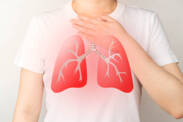
Pneumonia: Symptoms and Classification
Pneumonia is an inflammatory disease characterized by lung tissue damage. Depending on the origin of the disease, this inflammation can take both an infectious and a non-infectious form.

Endocarditis: How is it manifested, infectious, non-infectious or rheumatic? + Other forms and their causes
Endocarditis is a disease of the inner lining of the heart. It is an inflammatory disease that in most cases has an infectious origin. However, not always.
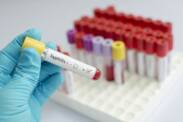
Syphilis: Symptoms, Transmission
Despite significant advances in diagnosis, syphilis remains a serious medical and social problem. Increasing numbers of cases in recent years are affecting younger and younger age groups, including children and adolescents.

Gonorrhea: Causes, Symptoms, Treatment
Sexually transmitted diseases include infectious diseases whose spread is closely linked to sexual intercourse and other sexual practices. They are transmitted by mucous secretions, blood, saliva or semen. One of the most common is gonorrhoea.

Dry choking cough as a symptom: What causes it in adults and children?
A dry irritating cough is a common symptom of a respiratory infection. In addition, it can be a symptom of a number of other diseases. Coughing also functions as a defence reflex.

What is the right diet for diarrhea, constipation or vomiting? How to stop them?
Diarrhoea, constipation or vomiting are ever-present problems. They have different causes and different therapies. A proper diet is important in the treatment. Today's article reveals the principles of appropriate eating to manage them faster.

What is HPV and the HPV vaccine? It's not just warts...
What is HPV and why is vaccination against this virus so important?

Golden staph: What is it, transmission, symptoms and treatment. How to protect yourself?
For many years, it has been the most common cause of bacterial infections. It occurs not only in the hospital setting, but also when it spreads among people in the community. It is rightly described as the most successful pathogen of modern times. We are talking about golden staphylococcus. Do you know what it is?
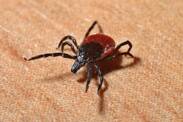
How to remove a tick correctly and safely? 6 important steps
The tick, the bogeyman of warm weather, is here again. This small parasite can cause great health problems for humans. Therefore, if it is found on the body, it should be pulled out as soon as possible. It is not difficult, but it should be acted upon immediately.

What functions does the small intestine perform? The most common diseases and symptoms
The small intestine is an important part of the digestive system. It is particularly important for the absorption of essential nutrients into the body. What are all its functions? What are the risk and beneficial factors that affect gut health?

Cholera: what is it, why does it occur, transmission and symptoms + Do we vaccinate?
Cholera is an intestinal infectious disease. It is caused by a bacterium. Although its treatment is simple, it is a threat to a person's health and life.

Inflammation of the nasopharynx, pharyngitis: symptoms, pain and other troubles
Pharyngitis is a very common respiratory disease, especially in children. What are the causes of pharyngitis?

Vulvitis: inflammation of the external genital organs of a woman. Causes, symptoms
Almost every woman will encounter some type of vulvar inflammation during her lifetime. Yet this topic is often taboo. How does vulvitis manifest itself and what are its possible causes?
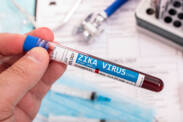
Zika virus: what is it, how is it transmitted and what are the symptoms?
There's been a lot of talk about viruses lately. You know the Zika virus?
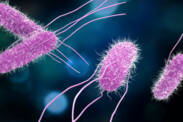
What is salmonellosis?3x how: how does it arise, how does it manifest itself, how to get rid of it?
Salmonellosis is a very common diarrhoeal disease caused by intestinal pathogens - more specifically Salmonella bacteria. It is one of the most common and well-known infectious diseases of the digestive tract.

Toxoplasmosis: What is it, symptoms and spread? What are its symptoms and how does it affect pregnancy?
Toxoplasmosis is considered one of the most common parasitic diseases in humans.









